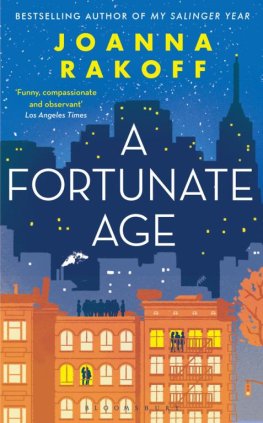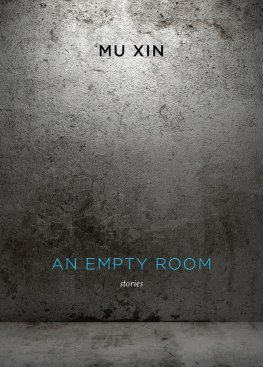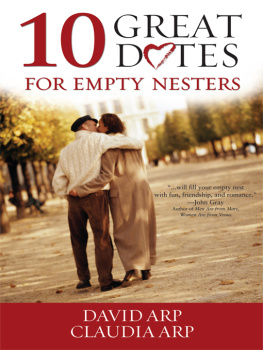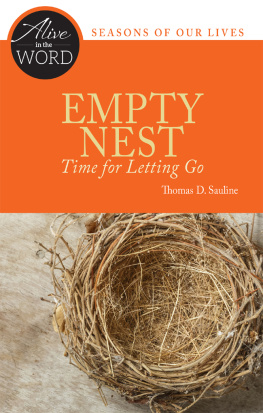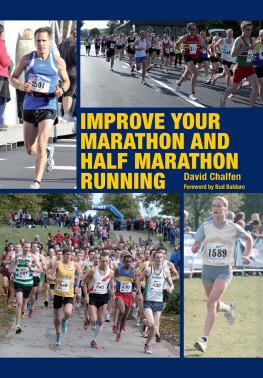David Rakoff - Half Empty
Here you can read online David Rakoff - Half Empty full text of the book (entire story) in english for free. Download pdf and epub, get meaning, cover and reviews about this ebook. year: 2010, publisher: Doubleday, genre: Art. Description of the work, (preface) as well as reviews are available. Best literature library LitArk.com created for fans of good reading and offers a wide selection of genres:
Romance novel
Science fiction
Adventure
Detective
Science
History
Home and family
Prose
Art
Politics
Computer
Non-fiction
Religion
Business
Children
Humor
Choose a favorite category and find really read worthwhile books. Enjoy immersion in the world of imagination, feel the emotions of the characters or learn something new for yourself, make an fascinating discovery.

- Book:Half Empty
- Author:
- Publisher:Doubleday
- Genre:
- Year:2010
- Rating:4 / 5
- Favourites:Add to favourites
- Your mark:
- 80
- 1
- 2
- 3
- 4
- 5
Half Empty: summary, description and annotation
We offer to read an annotation, description, summary or preface (depends on what the author of the book "Half Empty" wrote himself). If you haven't found the necessary information about the book — write in the comments, we will try to find it.
David Rakoff: author's other books
Who wrote Half Empty? Find out the surname, the name of the author of the book and a list of all author's works by series.
Half Empty — read online for free the complete book (whole text) full work
Below is the text of the book, divided by pages. System saving the place of the last page read, allows you to conveniently read the book "Half Empty" online for free, without having to search again every time where you left off. Put a bookmark, and you can go to the page where you finished reading at any time.
Font size:
Interval:
Bookmark:
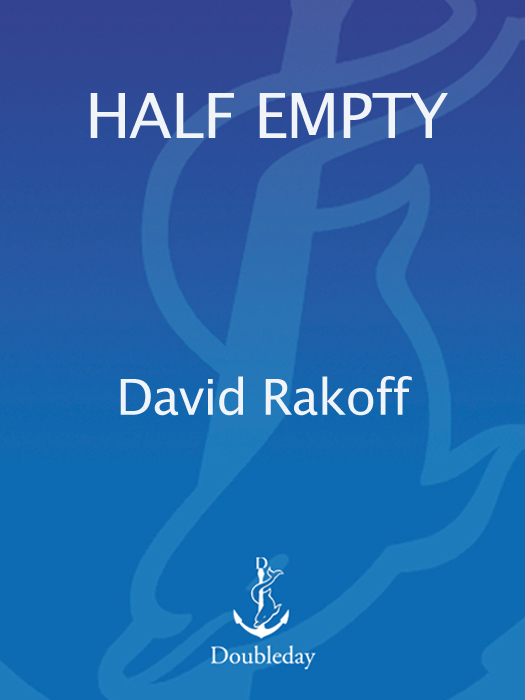
Also by David Rakoff
Fraud
Dont Get Too Comfortable
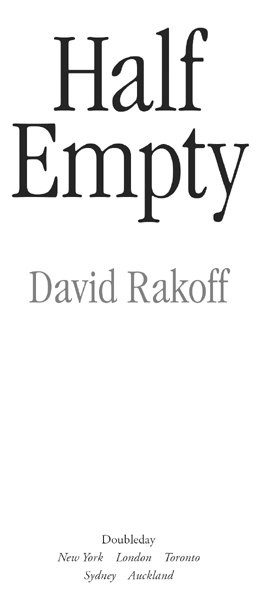

DOUBLEDAY
Copyright 2010 by David Rakoff
All rights reserved. Published in the United States by Doubleday, a division of Random House, Inc., New York, and in Canada by Random House of Canada Limited, Toronto.
www.doubleday.com
DOUBLEDAY and the DD colophon are registered trademarks of Random House, Inc.
Portions of this work previously appeared in slightly different form in Gourmet, the New York Times, Nextbook, and Spin.
Library of Congress Cataloging-in-Publication Data
Rakoff, David.
Half empty / David Rakoff.1st ed.
p. cm.
1. American wit and humor. I. Title.
PN6165.R35 2010
814.6dc22
2010007753
eISBN: 978-0-385-53369-0
v3.1
For
Patty Marx, Kent Sepkowitz, and Bill Thomas
If there was nothing to regret, there was nothing to desire.
Vera Pavlova
We were so happy. It was miserable.
Although it was briefly marvelous and strange to see a car parked outside an office, the wide hallway used like a street, many stories above the city.
The millennium had turned. The planes had not fallen from the sky, the trains had not careened off the tracks. Neither had the heart monitors, prenatal incubators, nor the iron lungs reset themselves to some suicidal zero hour to self-destruct in a lethal kablooey of Y2K shrapnel, as feared. And most important, the ATMs continued to dispense money, and what money it was.
I was off to see some of it. Like Edith Whartons Gilded Age Buccaneers, when titled but cash-poor Europeans joined in wedlock with wealthy American girls in the market for pedigree, there were mutually abusive marriages popping up all over the city between un-moneyed creatives with ethereal Web-based schemes and the financiers who, desperate to get in on the action, bankrolled them. The Internet at that point was still newish and completely uncharted territory, to me, at least. I had walked away from a job at what would undoubtedly have been the wildly lucrative ground floor (1986, Tokyo) because it had seemed so boring, given my aggressive lack of interest in technology or machines, unless they make food. Almost fifteen years later, I was no more curious nor convinced, but now found myself at numerous parties for start-ups, my comprehension of which extended no further than the free snacks and drinks, and the perfume of money-scented elation in the air. The workings of new media remained entirely murky, and I a baffled hypocrite, scarfing down another beggars purse with crme frache (flecked with just enough beads of caviar to get credit), pausing in my chewing only long enough to mutter Itll never last. It was becoming increasingly difficult to fancy myself the guilelessly astute child at the procession who points out the emperors nakedness as acquaintances were suddenly becoming millionaires on paper and legions of twenty-one-year-olds were securing lucrative and rewarding positions as content providers instead of answering phones for a living, as I had at that age. Brilliant success was all around.
So, so happy.
The surly Russian janitor (seemingly the only other New Yorker in a bad mood) rode me up in his dusty elevator in the vast deco building in the West Twenties, which was now home to cyber and design concerns that gravitated to its raw spaces and industrial cachet. The kind of place where the freight car and the corridors are both wide enough that youd never have to get out of your Lexus until youd parked it on the fourteenth floor.
Book publishing is always portrayed as teddibly genteel and literary: hunter-green walls, morocco-bound volumes, and some old codger in a waistcoat going on about dear Max Perkins. Worlds away from the reality of dropped-ceiling offices with seas of cubicles and mail-cart-scarred walls. But the Internet companies were coevolving with the fictionalized idealization of themselves. The way they looked in the movies was also how they looked in real life, much like real-life mobsters who now behave like the characters in the Godfather films.
The large industrial casement windows were masculine with grime, looking out over the rail yards on the open sky of West Side Manhattan. The content providers sat side by side at long metal trestle tablesthe kind they use in morguesproviding content, the transparent turquoise bubbles of their iMacs shining like insect eyes. It was a painfully hip dystopia, some Orwellian Ministry of Malign Intent whose sheer stylishness made it a pleasure to be a chic and soulless drone; ones personal freedoms happily abrogated for a Hugo Boss jumpsuit.
I was there to interview the founders of a site that was to be the one stop where members of the media might log on to read about themselves and the latest magazine-world gossip, schadenfreude-laden items about hefty book advances and who was seen lunching at Michaels, etc. I will stipulate to a certain degree of prejudicial thinking before I even walked in. I expected a bunch of aphoristic, McLuhan-lite bushwa, something to justify the house-of-cards business model. But as a reporter, I was their target audience as well as a colleague. I was unprepared to be spoken to like an investor, as if I, too, were some venture capitalist who goes goggled-eyed and compliant at the mere mention of anything nonnumerical. I was being lubed up with snake oil, listening to a bunch of pronouncements that sounded definitive and guru-like on the surface but which upon examination seemed just plain old wrong.
What makes a story really good and Webby, said one, is, say, we post an item on David Geffen on a Monday, and then one of Geffens people calls us to correct it, we can have a whole new version up by Tuesday. This was typical Dawn of the New Millennium denigration of print, which always seemed to lead to the faulty logic that it was not just the delivery system that was outmoded but such underlying practices as authoritative voice and credibility, fact-checking, editing, and impartiality that needed throwing out, too. It was a stance they both seemed a little old for, frankly, like watching a couple of forty-five-year-olds in backward baseball caps on skateboards. In the future, it seems, we would all take our editorial marching orders from the powerful subjects of our stories and it would be good (Right you are, Mr. Geffen!). It was a challenge to sit there and be told that caring about such things as journalistic independence or the desire to keep moneys influence at even a show of remove meant one was clinging to old beliefs, a fossil in the making. Now that everything and everyone was palliated by the never-ending flow of revenue, there was no need to get exercised about such things, or about anything, really.
We basically take John Seabrooks view that what you have is more important than what you believe. Whether you drive a Cadillac says more about you than if youre a Democrat or a Republican, said one, invoking a (print) journalist from The New Yorker.
Added the other: That you watched The Sopranos last night is more important than who you voted for.
They werent saying anything terribly incendiary. Its not like they were proposing tattooing people who have HIV the way odious William F. Buckley did (Im sorry, I mean brilliant and courtly, such manners, and what a
Font size:
Interval:
Bookmark:
Similar books «Half Empty»
Look at similar books to Half Empty. We have selected literature similar in name and meaning in the hope of providing readers with more options to find new, interesting, not yet read works.
Discussion, reviews of the book Half Empty and just readers' own opinions. Leave your comments, write what you think about the work, its meaning or the main characters. Specify what exactly you liked and what you didn't like, and why you think so.

